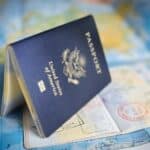The Caribbean region offers unique opportunities for banking and financial services that attract individuals and investors worldwide. Whether you are a resident, visitor, business owner, or investor, learning about Caribbean banks is essential.
This guides focuses on the list of banks supporting Caribbean economies, including banks in Jamaica, Barbados, and St Kitts and Nevis, and provides everything you should know about the Caribbean Association of Banks (CAB), along with the challenges of banking in the Caribbean.
The Caribbean Banking System
Founded in 1981, the Organization of Eastern Caribbean States (OECS) is an inter-governmental organization comprising seven full member states: Antigua and Barbuda, Commonwealth of Dominica, Grenada, Montserrat, St Kitts and Nevis, St Lucia, and St Vincent and the Grenadines, along with four associate members: Anguilla, the British Virgin Islands, Martinique, and Guadeloupe.
The Eastern Caribbean Currency Union (ECCU) was developed by the organization and is supervised by the Eastern Caribbean Central Bank (ECCB), the largest central bank in the Caribbean. The ECCU’s financial system comprises national and international banks, credit unions, and national development funds.
The ECCB and Eastern Caribbean Currency Union is the monetary authority for all 11 OECS member countries and began issuing the organization’s official currency in 2001—the Eastern Caribbean Dollar (EC or XCD). It is also responsible for formulating and implementing monetary policy to keep the value of the XCD stable, regulates all banks and institutions licensed within the ECCU, and ensures a secure and efficient payment system.
The Eastern Caribbean Dollar is currently pegged at EC 2.70 to US $1.
Besides adhering to policies set by the ECCB, Caribbean banks comply with regulations imposed by regional and international regulatory bodies, including the Caribbean Financial Action Task Force (CFATF), the World Bank, and the International Monetary Fund (IMF).
List of Banks in the Caribbean
Here is a list of banks in the Caribbean from Caribbean Association of Banks (CAB) members, including the Organization of Eastern Caribbean States.
Country | Bank |
Anguilla | CCI Bank |
National Commercial Bank | |
Scotiabank Anguilla | |
CIBC Bank | |
Bank of Anguilla | |
Antigua and Barbuda | ACB Caribbean |
Caribbean Union Bank | |
Eastern Caribbean Amalgamated Bank | |
Global Bank of Commerce | |
CIBC FirstCaribbean International Bank | |
British Virgin Islands | National Bank of Virgin Islands |
FirstCaribbean International Bank (Cayman) Ltd | |
VP Bank (the British Virgin Islands) Ltd | |
Banco Popular de Puerto Rico | |
Scotiabank (the British Virgin Islands) Ltd | |
First Bank VI | |
East Asia Financial Holding (BVI) Ltd | |
Dominica | National Bank of Dominica |
Republic Bank | |
Royal Bank of Canada | |
CIBC FirstCaribbean International Bank | |
Scotiabank (Bank of Nova Scotia) | |
Commonwealth Bank and Trust | |
Paxum Bank | |
Grenada | ACB Grenada Bank |
CIBC FirstCaribbean International Bank | |
Republic Bank (Grenada) | |
Grenada Cooperative Bank | |
Royal Bank of Canada | |
Guadeloupe | Antilles Francaises Bank |
BNP Paribas Bank | |
BRED Bank | |
Credit Agricole Bank | |
Credit Maritime Bank | |
Societe Generale Bank | |
Montserrat | Bank of Montserrat Ltd |
Royal Bank of Canada | |
St Kitts and Nevis | St Kitts-Nevis-Anguilla National Bank |
Bank of Nevis | |
Hamilton Reserve Bank | |
Royal Bank of Canada | |
Scotiabank | |
CIBC FirstCaribbean International Bank | |
St Lucia | Bank of St Lucia |
First National Bank of St Lucia | |
Hermes Bank | |
Republic Bank | |
CIBC FirstCaribbean International Bank | |
Scotiabank | |
Royal Bank of Canada | |
Berkeley Bank & Trust | |
Euro Exim Bank | |
St Vincent and the Grenadines | RBC Royal Bank Holdings (EC) Limited |
MPB Bank Ltd | |
Safe Harbor Bank Ltd | |
Loyal Bank Limited | |
Exness Bank Ltd | |
RBTT Bank Caribbean Ltd |
Who can open a bank account in the Caribbean?
Caribbean countries have broad eligibility criteria for those who can open regional and offshore bank accounts.
Citizens: Caribbean citizens can easily open personal or business bank accounts per their citizenship rights, provided they meet the bank’s requirements.
Expats: Expat residents and foreign nationals with legal stay can open bank accounts, typically requiring national identification and proof of address.
Legal entities: Companies registered in the Caribbean can open corporate bank accounts by submitting business registration documents and director identification.
Foreign nationals: Many Caribbean nations operate offshore bank systems, allowing foreign nationals to open bank accounts, provided they have valid identification, a legitimate source of funds, and make a minimum deposit.
Foreign companies: Offshore banks in the Caribbean facilitate banks for legal entities registered in foreign jurisdictions. This typically requires business registration documents, director identification, fund source verification, and an initial deposit.
Trusts and foundations: Some Caribbean banks offer account services to trusts or foundations, which typically require documentation related to their purpose and management.
Why bank in the Caribbean?
Whether you choose to live in the Caribbean or just bank there, there are many reasons you to bank in the Caribbean.
Residents: If you are a Caribbean resident, you will need the convenience of a local bank account to manage your daily transactions, pay bills, save money, receive salaries, and access credit.
Visitors: If you visit the Caribbean region for tourism, business, or other purposes, you may want to use national banks to facilitate transactions.
Business owners: If you operate a business in the Caribbean or trade with Caribbean partners, you may open a bank account to support your operations in Caribbean economies. You can use your bank account to pay suppliers, move capital, receive payments from customers, access loans, and invest in opportunities. You can also benefit from the favorable tax regime and regulatory environment in some of the Caribbean countries.
Investors: Individuals seeking investment opportunities will be pleased to know that the Caribbean is a stable and has a high-yielding economy. If you are interested in investing in the Caribbean or diversifying your portfolio, you may want to open a bank account to access various financial products and services. You can use your bank account to buy stocks, bonds, mutual funds, or other securities offered by international or local banks. You can also take advantage of the offshore banking options available in some territories.
How to Choose a Bank to Open an Account in the Caribbean
Choosing a quality institution from the best Caribbean banks list will require some due diligence and involve the careful consideration of several factors. Once you have determined your individual and business needs and goals, you will want to consider the following:
Services offered: Do they offer the services you need? This may include international wire transfers, online banking, and mobile banking.
Types of accounts: Do they have the types of accounts you are looking for? Some banks in Grenada and other Caribbean countries specialize in certain types of accounts, so choose one that aligns with your needs, whether it is savings, checking, business, or investment.
Reputation and financial stability: Seek out well-established, reputable banks. Look for banks that have a history of stability, are in good financial standing, and have a high level of customer service. Online customer reviews and recommendations from those who have experience with the bank are particularly helpful.
Regulatory compliance: Ensure that the bank is licensed to operate. In the case of Antigua and Barbuda, Dominica, Grenada, St Kitts and Nevis, and St Lucia, the bank would have to be licensed by the Caribbean Association of Banks. An ECCB license ensures strict compliance and ethical standards are met.
Currencies: Check the currency options available at the bank. If you plan to deal with different currencies, you will need a bank that offers multi-currency accounts.
Fees and charges: Review the fee structure of the bank and compare it with other banks. Maintenance fees, transaction charges, ATM fees, and other applicable costs can add up depending on your activity.
Interest rates: Shop around for the best interest rates since these can vary significantly from bank to bank, and other institutions like credit unions may offer better interest rates on savings and loans.
Accessibility, security, and privacy: Consider the availability of ATM machines, branch locations for in-person services, and online and mobile banking services. Convenience may be a top priority, especially if you spend limited time in the country. Accessibility and user-friendliness of online platforms are crucial, as is security and the peace of mind that comes from knowing your financial information is protected.
Can foreigners bank in the Caribbean?
Yes, foreigners can open accounts in Caribbean banks, subject to certain requirements and procedures set by the Eastern Caribbean Central Bank. Depending on the country and the bank, you need to provide documents such as your passport, proof of address, proof of income, reference letter from your home bank, and other information. You may also need to make a minimum deposit or maintain a minimum balance in your account. Some banks may allow you to open an account online or remotely, while others will require you to visit a branch in person.
One of the ways to facilitate your banking experience in the Caribbean is to obtain citizenship by investment (CBI) in Antigua and Barbuda, Dominica, Grenada, St Kitts and Nevis, or St Lucia. These countries offer attractive CBI programs governed by a Caribbean CBI regulator that allow foreigners to acquire citizenship and travel to visa free countries for Caribbean passport holders in exchange for a qualifying donation or investment.
International banks
There are two international institutions with operations in multiple countries around the world that currently operate in the Eastern Caribbean countries of Dominica, Grenada, St Kitts and Nevis, and St Lucia. They are Scotiabank and the Royal Bank of Canada. Both banks have branches in these four territories and offer a range of services similar to those offered in their other global branches. Up until 2021, both banks also had operations in Antigua, but ACB Caribbean took over Royal Bank of Canada’s operations while Scotiabank was sold to Eastern Amalgamated Bank.
Offshore banking
Offshore banking allows individuals and businesses to open bank accounts in countries in which they do not reside or conduct business. It offers a high level of privacy, potential tax benefits, asset protection, and access to a range of investments.
Countries offering Caribbean citizenship by investment programs, including Antigua and Barbuda, Dominica, Grenada, St Kitts and Nevis, and St Lucia, offer offshore banking services through various banks that have international banking licenses and can perform transactions in various currencies. For example, the Global Bank of Commerce in Antigua and Barbuda, and Hermes Bank in St Lucia.
Currencies
The main currency used in Antigua and Barbuda, Dominica, Grenada, St Kitts and Nevis, and St Lucia is the Eastern Caribbean Dollar, which, as mentioned above, is pegged to the US dollar at a fixed rate of XCD 2.70 to US $1. This provides a high level of stability and predictability for transactions and investments. For more flexibility and diversity, you might opt to open accounts in other currencies such as USD, EUR, GBP, or CAD.
Cryptocurrency: While some Caribbean governments and central banks have expressed interest in exploring the use of cryptocurrency, and some countries have exchanges that will buy Bitcoin and other cryptocurrencies, neither of the smallest or largest banks in the Caribbean currently accept cryptocurrency for bank transactions.
Implications of choosing the wrong Caribbean bank
Choosing the wrong bank in the Caribbean can have many negative consequences for both personal and business account holders.
- High fees and hidden charges will eat into your savings.
- Poor customer service will make resolving issues a nightmare.
- Limited services and unreliable technology will make it hard or time-consuming to complete transactions.
- Banks with bad foreign exchange rates and high fees for international transactions will reduce foreign client profit margins.
- Compliance risks with poorly rated banks will put your funds at risk.
Ultimately, opening an account at the wrong bank will impact your overall finances and possibly your reputation, so research a bank’s fee structure, customer service reputation, compliance record, and foreign exchange rate before committing to it.
Besides the bank itself, unstable economies present the likelihood of insolvency due to the inability to maintain consistent, reliable services and access to funds, jeopardizing bank deposits. Instability also causes inflation and rapid currency devaluation, which can erode the value of savings.
Best Caribbean Banks Comparison
Bank Name | Country | Services Offered | Online and Mobile Banking | Year Established | Key Features |
Antigua Commercial Bank | Antigua and Barbuda | Personal banking, corporate banking, investments | Online and Mobile | 1955 | Largest bank in Antigua and Barbuda |
Eastern Caribbean Amalgamated Bank | Antigua and Barbuda | Personal, corporate, investments | Online | 1974 | Operates in multiple Caribbean countries |
Scotiabank | Antigua and Barbuda | Personal, corporate, investments | Online and Mobile | 1956 | Part of the global Scotiabank Group |
Royal Bank of Canada | Antigua and Barbuda | Personal, corporate, investments | Online and Mobile | 1996 | Part of the Royal Bank of Canada |
BOI Bank Antigua | Antigua and Barbuda | Offshore banking, wealth management, investment services | N/A | - | International bank only |
BRS Banque | Antigua and Barbuda | Offshore banking, wealth management, investment services | Online | - | International bank only |
Davos International Bank | Antigua and Barbuda | Offshore banking, wealth management, investment services | N/A | - | International bank only |
Global Bank of Commerce | Antigua and Barbuda | Offshore banking, wealth management, investment services | Online | - | International bank only |
National Bank of Dominica | Dominica | Personal, corporate, investments | Online and Mobile | 1978 | Focuses on development-oriented banking |
CIBC First Caribbean Bank | Dominica | Personal, corporate, investments | Online and Mobile | - | Part of the CIBC Group |
Republic Bank | Dominica | Personal, corporate, investments | Online and Mobile | 1964 | Part of the Republic Financial Holdings Limited |
Grenada Cooperative Bank | Grenada | Personal, corporate, investments | Online and Mobile | 1932 | Emphasis on cooperative and community-based banking |
Republic Bank | Grenada | Personal, corporate, investments | Online and Mobile | 1960 | Part of RFHL |
Eastern Caribbean Amalgamated Bank | Grenada | Personal, corporate, investments | Online | 2004 | Operates in multiple Caribbean countries |
St Kitts-Nevis-Anguilla National Bank | St Kitts and Nevis | Personal, corporate, investments | Online and Mobile | 1971 | Focuses on national development |
Bank of Nevis | St Kitts and Nevis | Personal, corporate, investments | Online and Mobile | 1985 | Community-oriented banking |
First Citizens Bank | St Lucia | Personal, corporate, investments | Online | 1917 | Part of First Citizens Group |
Bank of Saint Lucia | St Lucia | Personal corporate, investments | Online and Mobile | 1968 | Government-owned, focuses on national development |
CIBC FirstCaribbean Bank | St Lucia | Personal, corporate, investments | Online and Mobile | 2002 | Part of the CIBC Group |
National Commercial Bank Jamaica Limited (NCB) | Jamaica | Personal, corporate, investments | Online and Mobile | 1837 | Fast personal and commercial services |
RBC Royal Bank | Barbados | Personal, corporate, investments | Online and Mobile | 1864 | Part of the Royal Bank of Canada Group |
Banreservas | Dominican Republic | Personal, corporate, investments | Online and Mobile | 1941 | Focuses on development-oriented banking |
National Bank of Virgin Islands | British Virgin Islands | Personal, corporate, investments | Online | 1976 | National and offshore banking services |
The International Monetary Fund estimates that the Caribbean economy will grow by 9.8 percent compared to the global rate of 3.1 percent. Banreservas in the Dominican Republic posted a net income growth of 11 percent in 2023. Scotiabank led the way in five Caribbean countries, reporting a 46 percent increase in earnings from 2022 to 2023 in the Bahamas. Following its acquisition of Santander’s $5.5 billion in Caribbean assets located in Puerto Rico and the US Virgin Islands in 2020, FirstBank boosted it’s loan portfolio by 11.8 percent.
The Caribbean Association of Banks
The Caribbean Association of Banks (CAB) represents over 80 Caribbean member institutions with assets totaling over $41 billion. The CAB advocate for the interests of its member institutions across the 20 Caribbean states. As a collective voice for the banking sector, the CAB works to promote best practices, and collaboration, and address common challenges faced by members in the region.
Membership encompasses three primary categories: General, Service, and Associate members, in addition to honorary membership, which includes the Caribbean Development Bank.
How to Open a Caribbean Bank Account
Foreign nationals and residents can open accounts to use the services of the top banks in the Caribbean. Obtaining Caribbean citizenship by investment simplifies Caribbean banking, as the process of opening an account for a foreign national and non-CARICOM citizen typically takes longer. A list of Caribbean banks usually accept online documents. However, a foreigner may need to provide additional documentation, depending on the bank.
Bank account activation time and service fee in USD
Country | Time to Account Activation | Service Fee | Minimum Deposit |
Antigua and Barbuda | At least two weeks | $7 monthly | $400 plus |
Dominica | At least ten days | $4 monthly | $100 plus |
Grenada | At least two weeks | $3 monthly | $200 plus |
St Kitts and Nevis | At least two weeks | No charge | $200 plus |
St Lucia | At least two weeks | No charge | $100 plus |
Opening a Caribbean bank account remotely
The Antigua Commercial Bank, Eastern Caribbean Amalgamated Bank, CIBC First Caribbean Bank, Bank of Nevis, and Bank of Saint Lucia are some Caribbean banks that allow foreign nationals to open accounts remotely.
The typical requirements to option an account remotely include:
- Valid passport and a notarized copy
- Proof of residency in the country of primary residence
- Bank statements and proof of a legal source of funds
- Initial deposit
Beyond these requirements, some banks may request a second form of ID, additional documentation regarding financial history, or a bank reference letter.
Challenges of Banking with Caribbean Banks
- Pace: Processes may be slower compared to larger financial hubs.
- Bureaucracy: Some bureaucratic hurdles may be encountered due to regulatory and compliance requirements.
- Cost: Certain specialized services may come with higher associated costs.
- Product offerings: Some of the best banks in the Caribbean may have a narrower range of financial products on offer compared to larger international institutions. This could limit options for specialized financial products and services that may be available elsewhere.
- Access to international markets: Caribbean commercial banks may have limited access to international financial markets, which can impact their ability to offer certain services like international trade financing, currency hedging, or access to a wide range of investment products.
- Economic stability and risk: Caribbean economies can be more susceptible to external shocks, such as hurricanes, global economic volatility, or disruptions in tourism, which may affect the stability of the banking sector.
Global Citizen Solutions is a boutique migration consultancy firm with years of experience delivering bespoke residence and citizenship by investment solutions for international families. With offices worldwide and an experienced, hands-on team, we have helped hundreds of clients worldwide acquire citizenship, residence visas, or homes while diversifying their portfolios with robust investments. We guide you from start to finish, taking you beyond your citizenship or residency by investment application. How Can Global Citizen Solutions Help You?

Frequently Asked Questions
What is the best bank in the Caribbean?
The best bank in Caribbean countries is subjective and will depend largely on individual needs, preferences, and intended activities or business goals. We recommend that you conduct thorough research on banking options and seek professional advice.
Why are banks leaving the Caribbean?
Over the last five years, two Canadian banks have withdrawn operations from Caribbean countries. There are several factors that may influence a bank’s decision to cease operations in any region or territory. They may include regulatory changes by the Caribbean Association of Banks and evolving global economic trends that make the move economically beneficial.
The Canadian bank exits, including from Antigua and Barbuda, were driven by a heightened level of risk associated with maintaining compliance protocols and the threat of natural disasters, primarily hurricanes, which have increased in frequency in the past decade. The cost of doing business may have outstripped the returns that could be realized in a different market with a more robust economic framework.
Can I open a bank account with a Caribbean Bank?
You can open an account whether you’re a Caribbean passport holder or a foreign national. Caribbean economies are actively welcoming foreign investors and, for the most part, have streamlined processes for opening bank accounts. However, requirements may vary from bank to bank.
What is the number one bank in the Caribbean?
According to Global Finance Magazine, Banreservas was voted as the best Caribbean bank. Scotiabank (Bank of Nova Scotia) also received votes for the Caribbean’s best bank.
Which Caribbean island is known for banking?
The Cayman Islands is the most renowned country in the Caribbean for banking due to its status as a major offshore financial center. Its reputation stems from favorable regulatory frameworks, political stability and neutrality, and a strong tradition of investor confidentiality. The country’s financial institutions provide an array of financial services, from a personalized service for investment funds and trusts to tax optimization and asset protection.
What is the oldest bank in the Caribbean?
Since its founding in 1836, the Colonial Bank of Trinidad and Tobago has been the Caribbean’s oldest financial institution, providing personal and corporate banking services.
Why do people bank in the Caribbean?
People often choose to bank in Caribbean countries due to favorable taxes, including no personal income tax, capital gains, or inheritance taxes. Additionally, Additionally, Caribbean banks like the Caribbean Development Bank offer strong privacy protections, and banking policies enforced by Caribbean Association of Banks (CAB) as well as the Eastern Caribbean Dollar ensure a stable financial environment.




